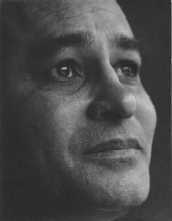|
Ralph Bunche was a brilliant scholar and eminent
professor who became an internationalist. For his meticulous,
unflagging and ultimately successful efforts to resolve the first
Arab-Israeli conflict in 1949, he was awarded the Nobel Prize
for Peace in 1950, becoming the first black man accorded such
distinguished recognition by Norway's Nobel Institute.
He is considered by many to be the original architect of United Nations peacekeeping, a concept he put into practice on the ground in the Middle East and in numerous “hot-spots” around the globe.
During twenty-five years of devoted service
to the United Nations, Bunche championed the concept of equal
rights for everyone, regardless of race or creed. He believed
in “the essential goodness of all people, and that no problem
in human relations is insoluble.” Through the UN Trusteeship Council,
Bunche readied the international stage for an unprecedented period
of transformation, dismantling the old colonial systems in Africa
and Asia, and guiding scores of emerging nations through the transition
to independence in the post-war era.
|
 |
Bunche played a prominent role in the drafting of the United Nations Charter,
the foundation on which all principles of the Organization are based. He never surrendered in the
fight for what he passionately believed to be man's birthright –“the right to be treated as an equal
by all other men.” Ralph Bunche was a staunch advocate of human rights, and believed that the struggle
for civil rights in America was inextricably linked to the wider cause of justice and freedom for
people of all races throughout the world. |

